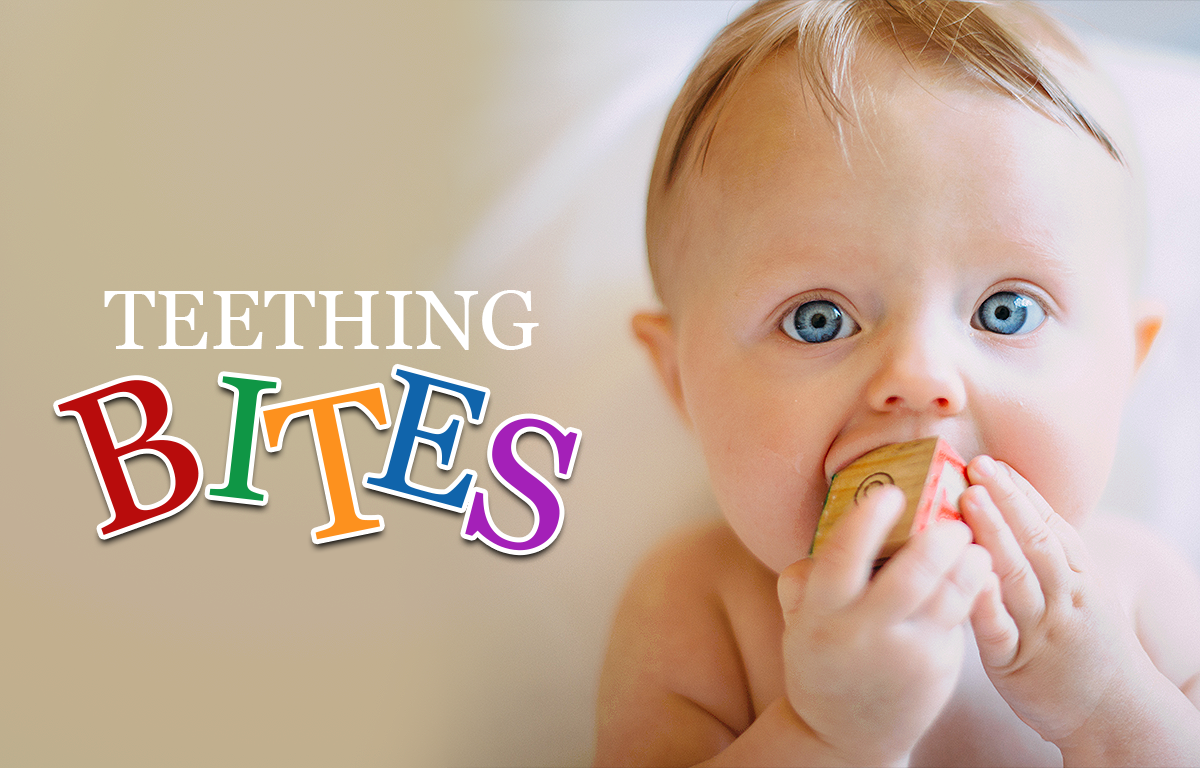
The eruption of your baby’s first tooth is an exciting milestone that parents often look forward to. However, it can also be a confusing, stressful time if you aren’t sure what to expect from the teething process. Whether you’re a veteran parent looking to improve your next child’s teething experience, or a new or expecting parent just looking for some guidance, look no further than this handy guide.
Tip #1: Know the Signs
The most important way to help your baby teethe is to properly identify signs of teething! If your baby is drooling more than usual, acting crankier or more irritable than usual, or biting everything in sight, those first couple of teeth may be on their way.
Tip #2: Stock Up
As soon as you’re certain that your child is teething, you’re going to want to have a few things on hand. Teething rings are commonly given to babies to gnaw on; the pressure can be soothing to them. Alternatively, you can freeze small pieces of soft fruit like banana or mango to cool and numb baby’s mouth while also serving as a nutritious snack. Clean, chilled washcloths can also be helpful to chomp on, as they mold more easily to the shape of the child’s mouth, and can get toward the back teeth more easily than a plastic ring can.
Tip #3: Keep It Clean!
Make sure you’re consistently wiping drool away from your baby’s chin. If drool is left to run and dry, it can cause painful skin irritation on the face. Additionally, as soon as any teeth are visible, give them a gentle brush with a soft-bristled toothbrush and a tiny swipe of toothpaste no larger than a grain of rice.
Tip #4: Don’t Confuse the Symptoms
Many parents believe that fever and diarrhea are simply side effects of teething, but this isn’t the case. If your child is feverish or otherwise sick during the teething process, take them to the doctor!
Tip #5: Schedule Regular Dental Checkups
Now that your child is growing their first set of teeth, it’s time to start caring for them! The American Dental Association recommends that children begin regular dental checkups six months after the eruption of their first tooth. If your child is teething now, it’s time to give your dentist a call and begin forming healthy dental habits that will last a lifetime!





